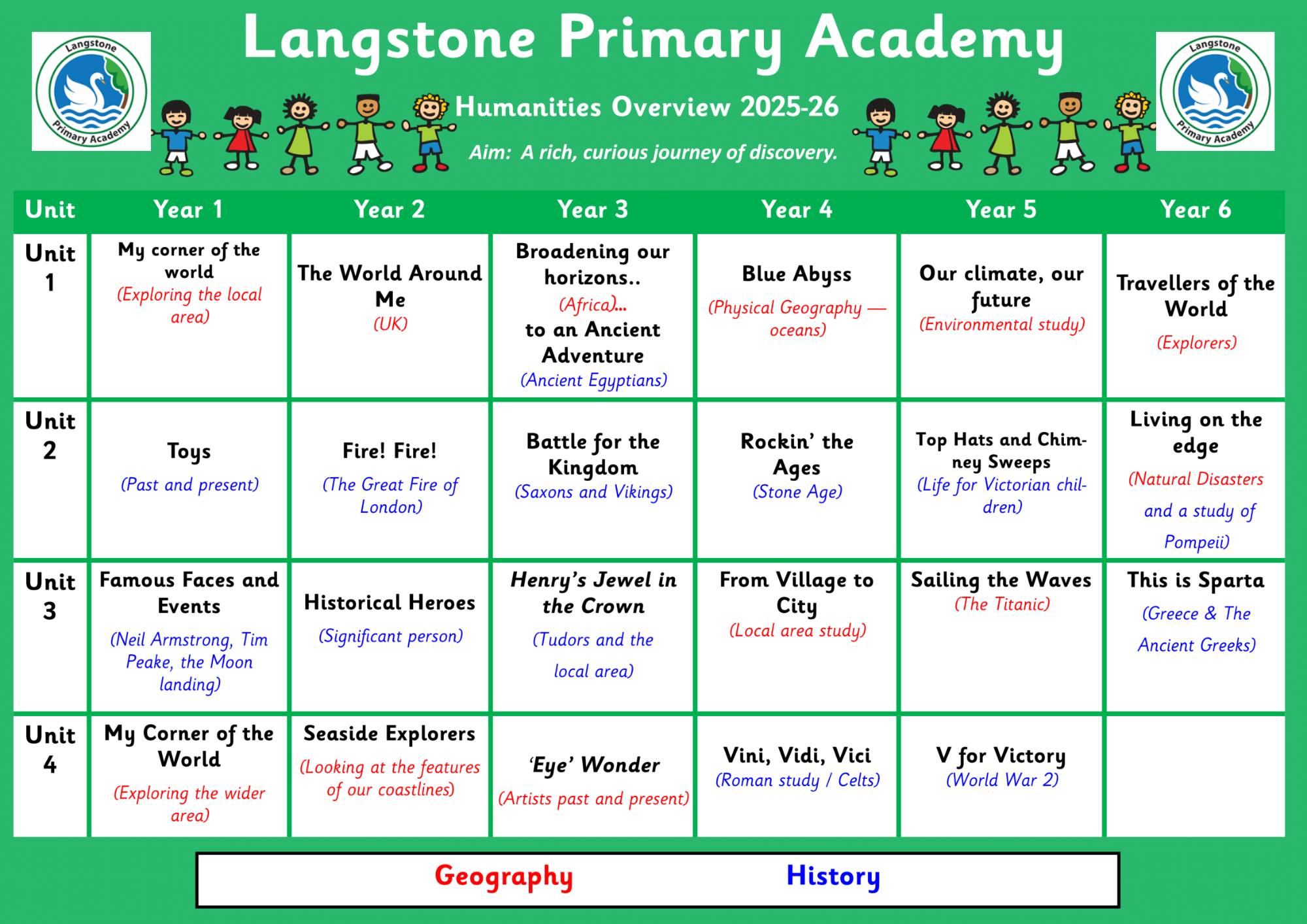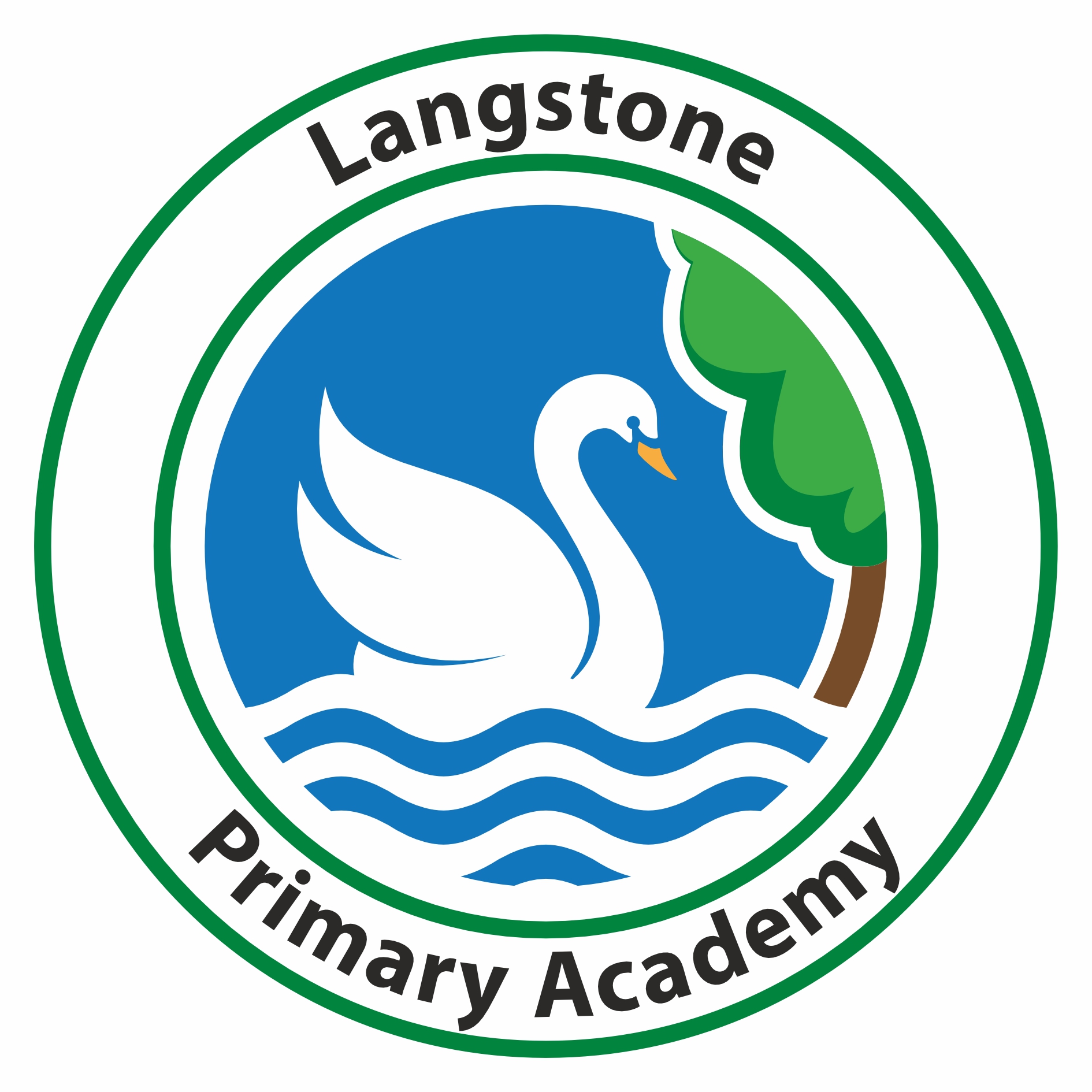Think, Learn, Be Excellent Together
Think, Learn, Be Excellent Together
Think, Learn, Be Excellent Together
Think, Learn, Be Excellent Together
humanities
Intent
Teachers and pupils are naturally inquisitive about the world in which they live. We believe that all children should be able to challenge and question the world around them. This will develop their understanding of the world in which they live. Thought provoking questions will challenge our children to discuss their views, enabling them to have a sense of belonging in time and place and help them to become responsible global citizens.
In order to achieve this, we will:
- Create opportunities for memorable, meaningful and relatable learning about our world and its people from the past and present because this develops their understanding of the world. We want children to learn from the past and understand the impact that it has on the present and their future.
- Enable children to work towards an outcome using relevant real life scenarios, experiences, discussions and questioning because we believe children learn best through discussions about something that is meaningful to them in a language rich environment where they can learn to be reflective and reciprocal learners.
- Teach, support and develop the skills children will need to ask and answer geographical and historical questions because giving children opportunities to apply their knowledge using the skills of debate, speaking and listening, develops a greater depth of understanding and allows them to communicate geographical and historical information confidently in a variety of ways building on their cultural capital and becoming respectful and caring members of society.
By the end of EYFS in Understanding the World, children will:
- talk about people and places describing some of their similarities and differences using some simple historical and geographical vocabulary
By the end of KS1 in Geography, the children will:
- Understand geographical locations of local places and describe their physical and human geography
- Understand and use basic geographical vocabulary
- Recognise and use some geographical representations
By the end of KS1 in History, the children will:
- Begin to ask historical questions
- Understand chronology and change and the significant events that have shaped humanity
- Understand and use some vocabulary relating to the passing of time
By the end of KS2 in Geography, children will:
- understand the geographical location of places and their physical and human features. (Comparing modern Egypt to South Africa, discovering physical geography through the oceans, areas that explorers discovered, modern Greece)
- know the relationships between the physical features of places and the human activity within them. (Tudor Life and the city of Portsmouth, differences between cities and villages, how natural disasters shaped the world)
- learn the representations, vocabulary and techniques to work geographically
By the end of KS2 in History, the children will:
- understand time and the importance of chronological knowledge to understand how things have changed
- know about the history of Britain and how it has influenced and been influenced by the wider world (the Vikings, AngloSaxons and Romans)
- explore significant aspects of the history of the wider world like ancient civilisations, empires (Ancient Egypt and Ancient Greece) and different stages of human evolution (The Iron age)
- explore the lives of significant people of the past (Henry VIII, Amelia Earhart and explorers of the world)
- learn the language needed to discuss historical events

